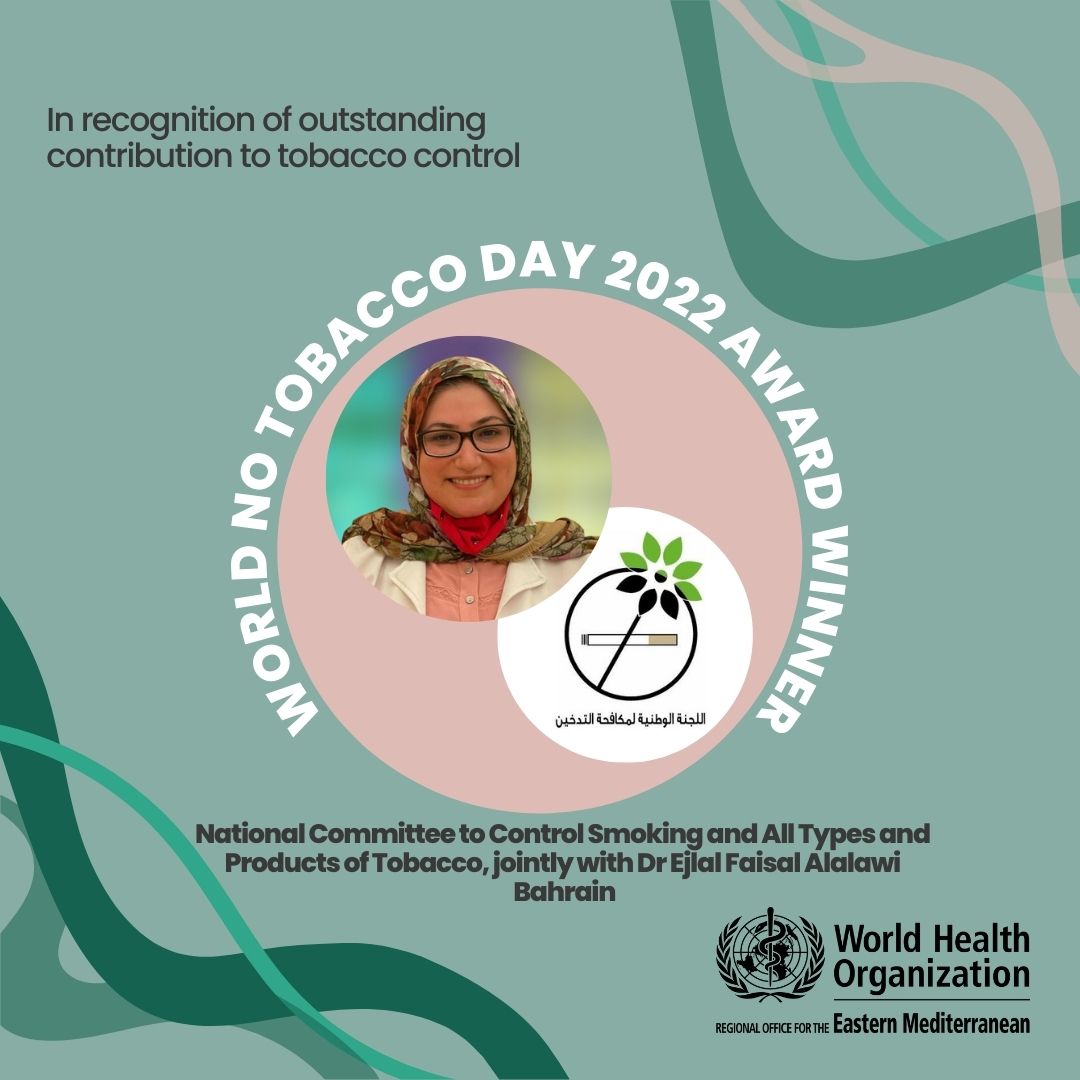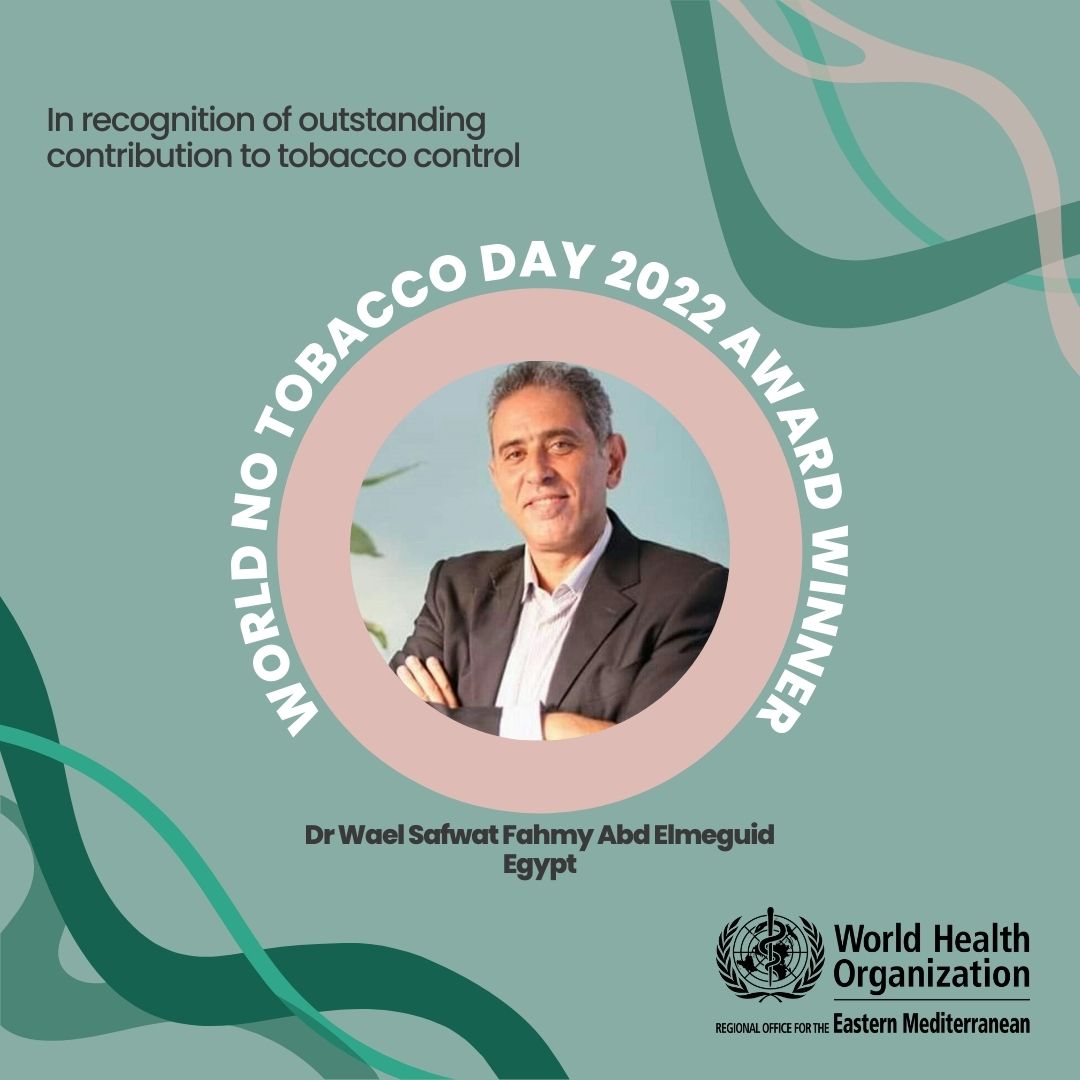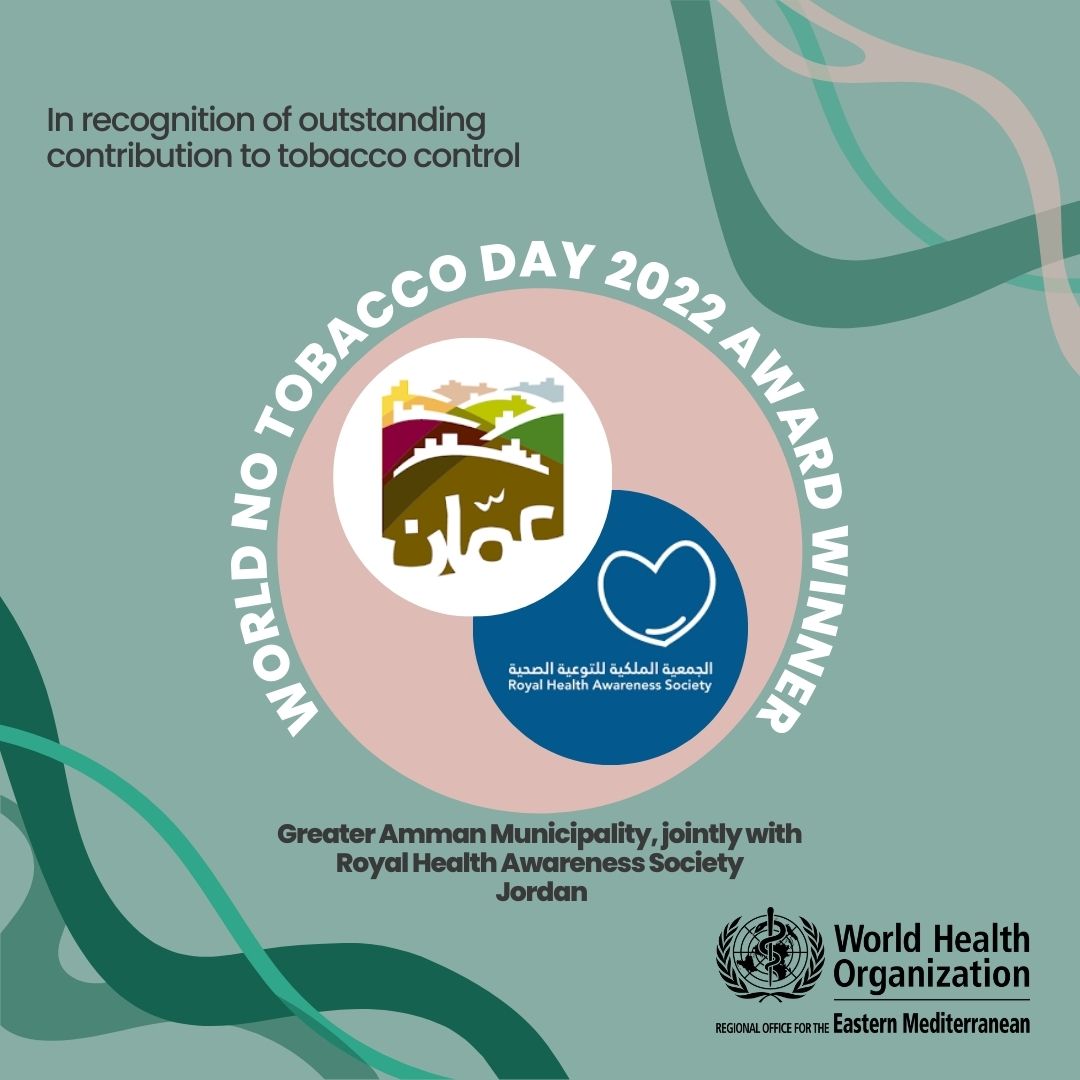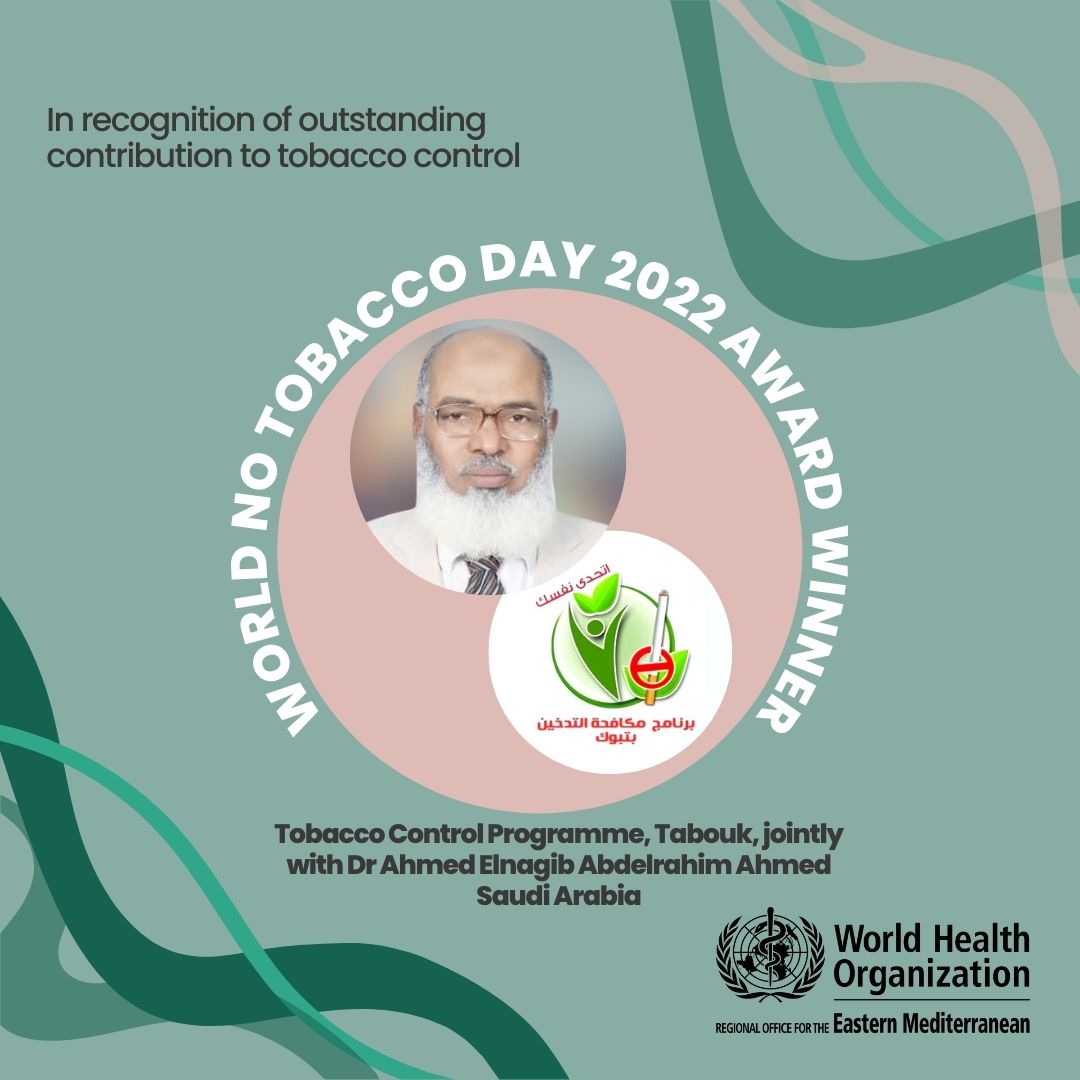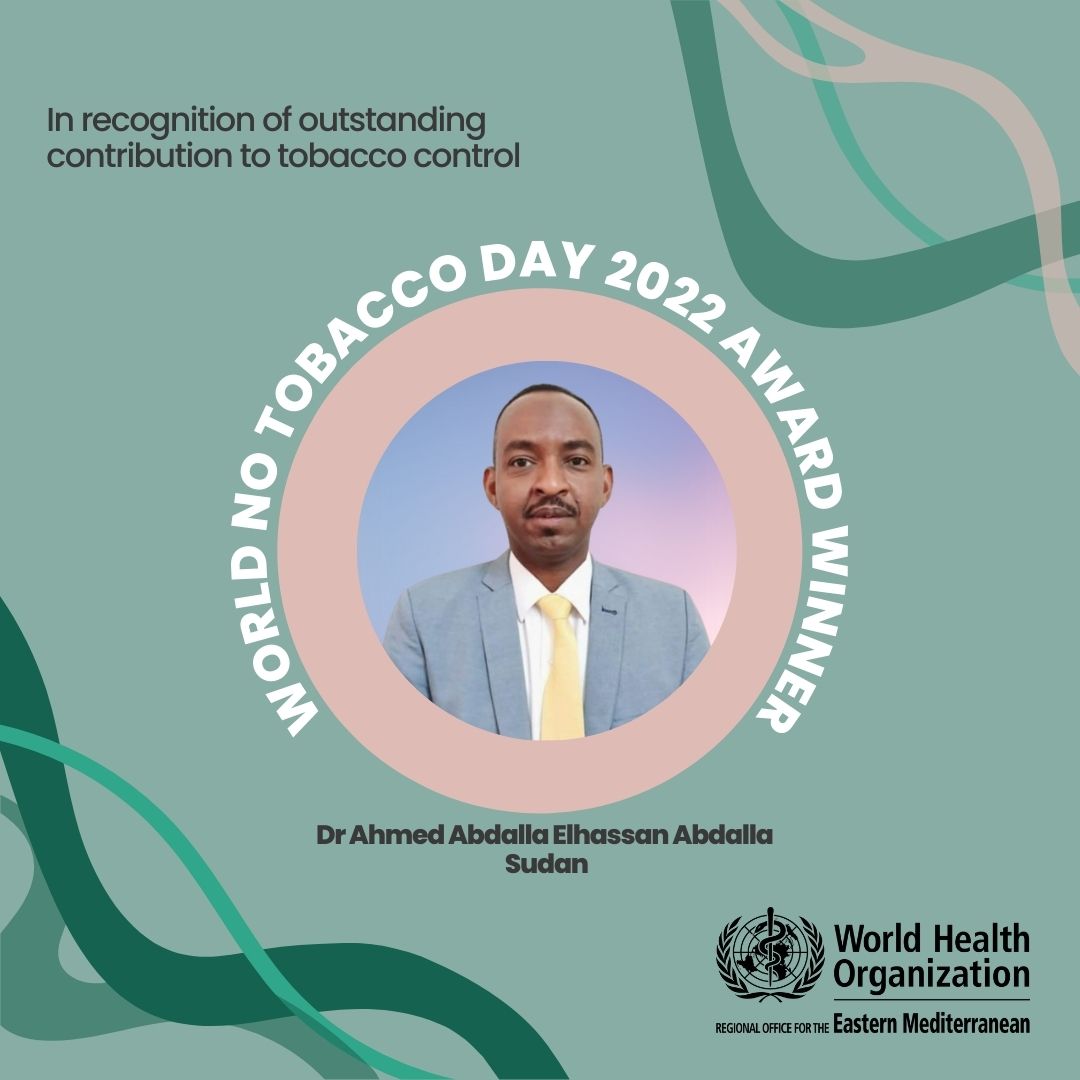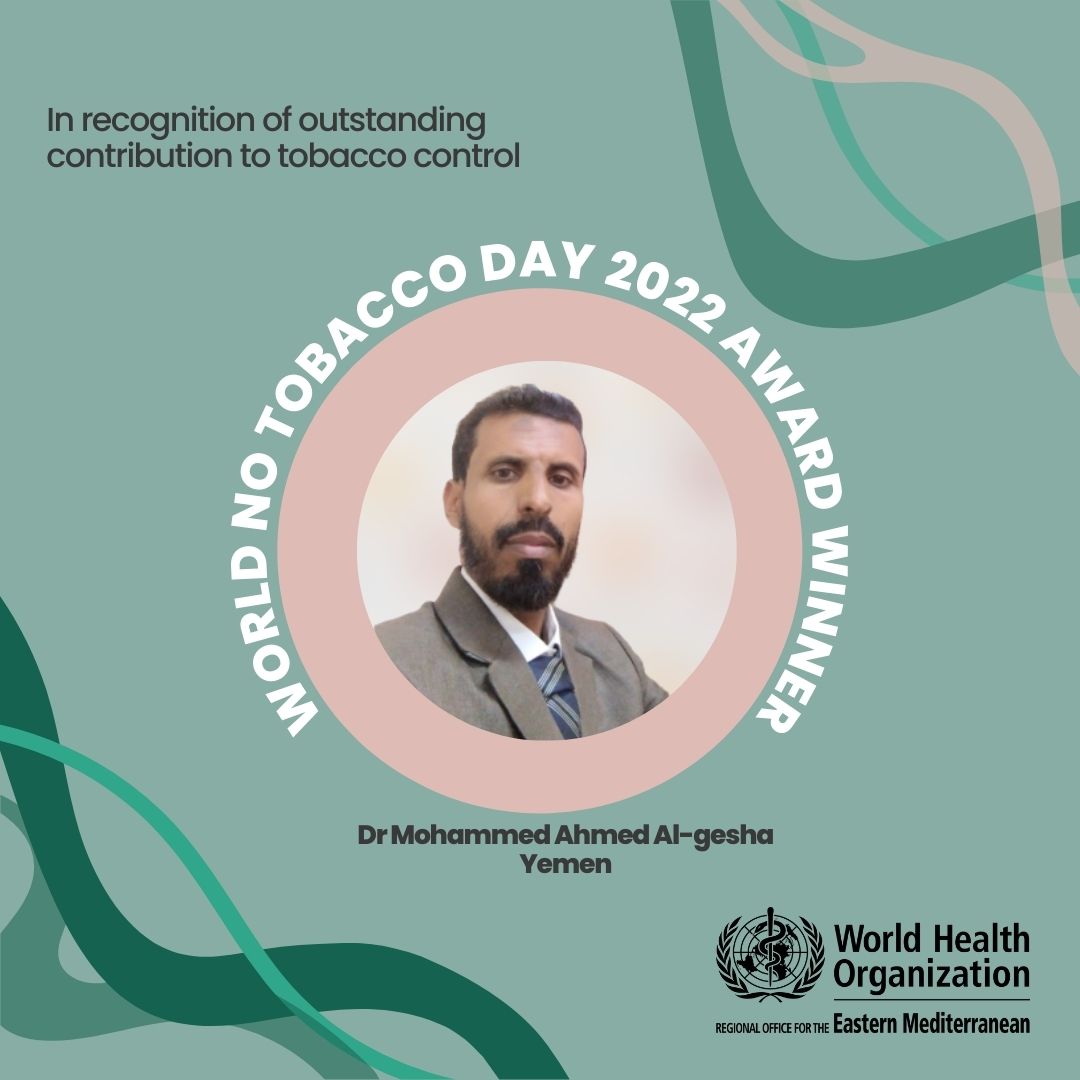World No Tobacco Day 2022 awards winners
World No Tobacco Day 2022 awards | The winners
Every year, WHO recognizes individuals or organizations in each of the six WHO Regions for their accomplishments in the area of tobacco control. This recognition takes the form of WHO Director-General Special Recognition Award and World No Tobacco Day Awards. Here are the Eastern Mediterranean Region awardees for 2022.
National Committee to Control Smoking and All Types and Products of Tobacco, jointly with the Tobacco Control Focal Point, Dr Ejlal Faisal Alalawi, Bahrain
Dr Wael Safwat Fahmy Abd Elmeguid, Egypt
Greater Amman Municipality, jointly with Royal Health Awareness Society, Jordan
Tobacco Control Programme, Tabouk, jointly with Dr Ahmed Elnagib Abdelrahim Ahmed, Saudi Arabia
Dr Ahmed Abdalla Elhassan Abdalla, Sudan
Dr Mohammed Ahmed Al-gesha, Yemen
Poisoning our planet
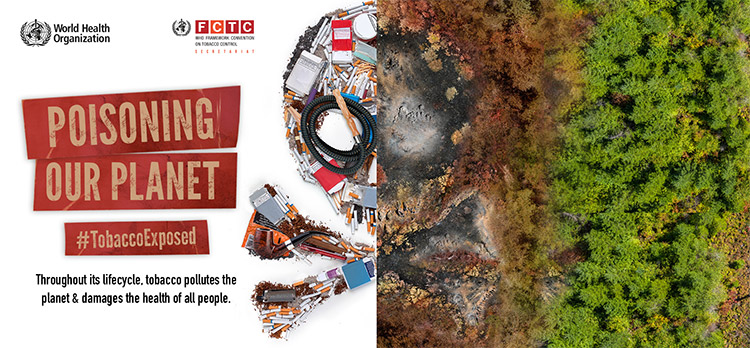
Tobacco harms the environment. Tobacco growing, manufacturing and use poison our water, soil, beaches and city streets with chemicals, toxic waste, cigarette butts, including microplastics, and e-cigarette waste.
Don’t fall for the tobacco industry’s attempt to try and distract from its environmental harms by greenwashing their products through donations to sustainability initiatives and reporting on environmental “standards” they often set themselves.
The harmful impact of the tobacco industry on the environment is vast and growing adding unnecessary pressure to our planet’s already scarce resources and fragile ecosystems.
Tobacco kills over 8 million people every year and destroys our environment, further harming human health, through its cultivation, production, distribution, consumption, and post-consumer waste.
Make the tobacco industry clean up their mess
Quit tobacco to save our planet
Help tobacco farmers switch to sustainable crops
Tobacco harms the environment
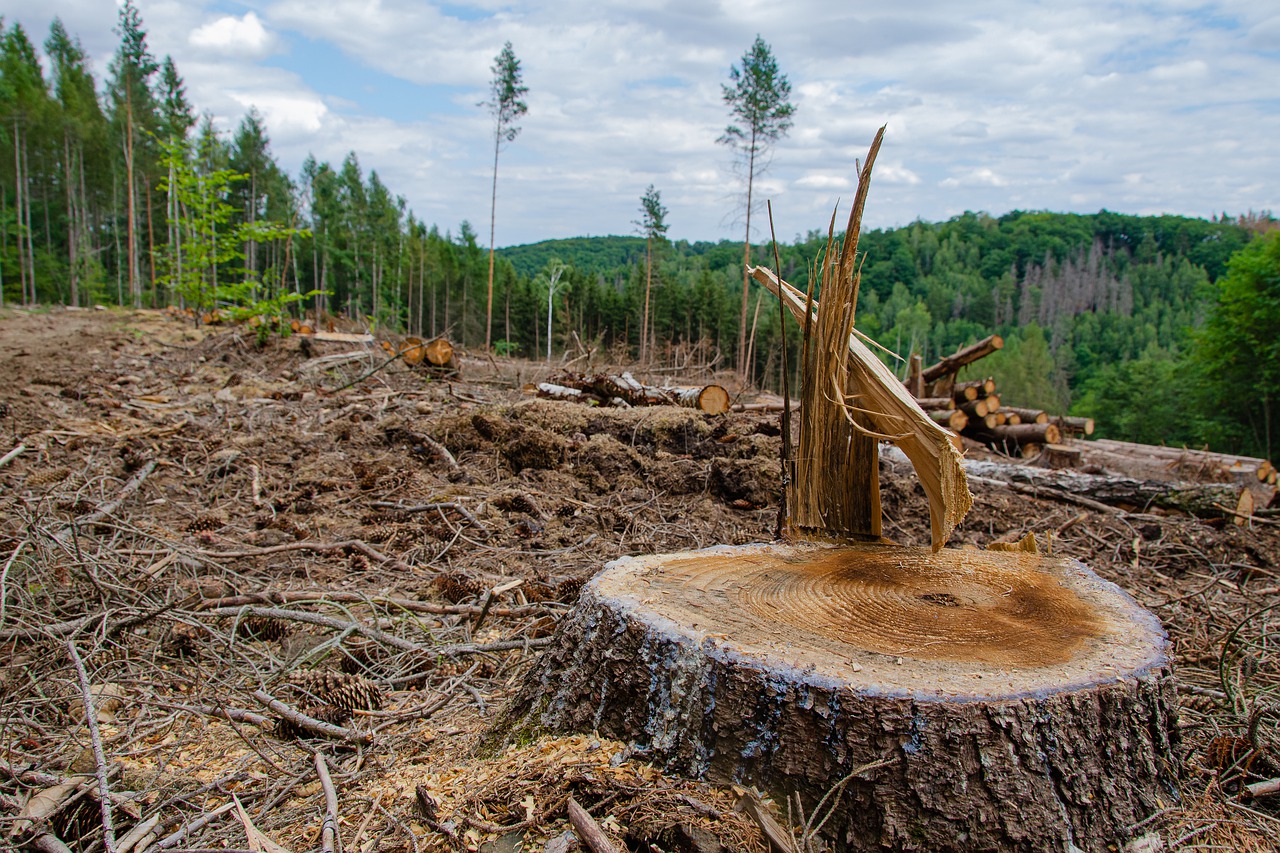
Poisoning our planet. Waste from tobacco, cigarettes, novel and emerging products such as e-cigarettes and heated tobacco products makes its way into our environment and ends up polluting the air we breathe and destroying the land we cultivate with toxic chemicals, heavy metals and residual nicotine. It also pollutes the water, poisoning marine life and clogging waterways.
Air pollution. Gas emissions from the smoke are polluting our air which is contributing to climate change, reducing climate resilience, wasting resources and damaging ecosystems.
Growing and curing. Growing tobacco is destroying millions of hectares of land and is contributing to deforestation which promotes soil degradation and failing yields.
Manufacturing tobacco products. Emissions, energy use and water consumption related to growing tobacco, shredding and assembling the tobacco, freezing and artificially expanding the surface area of tobacco, reconstituting tobacco, rolling paper, producing tobacco product filters, producing packaging, manufacturing and logistics. The importation of tobacco for manufacturing also contributes to carbon footprint.
Distributing tobacco products. The transport of tobacco products also contributes to CO2 pollution and the use of plastics in filters and packaging material is an environmental concern.
Post-consumer waste. Cigarette butts are being littered in beaches and waterways. People dispose of them everywhere – in the environment, on streets, sidewalks and other public areas. Cigarette butts end down the drain and washing up to pollute rivers, beaches and oceans. The plastic in cigarette butts doesn’t biodegrade so it ends up being eaten by the marine life, on the shore, or at the bottom of water.
E-waste from novel and emerging products. There is also the waste from novel and emerging products such as e-cigarettes and heated tobacco products, which is increasing as more people use these products. For example, single use e-cigarettes, disposable ones, cartridges, pods contain plastic, electronic and chemical waste, and like cigarette butts, many end up littered in a way that isn’t safe or environmentally friendly. These products also generate toxic emissions, which can pollute the environment.








